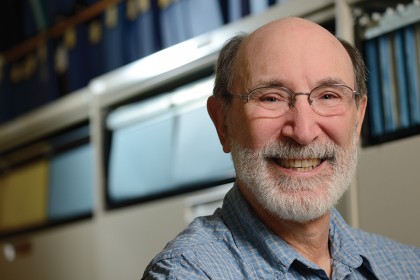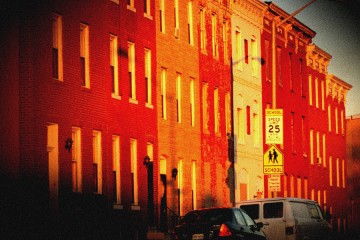The results of a longtime study by Johns Hopkins sociologists may help change preconceived notions about the face of America's urban poor population.

Image caption: Sociologist Karl Alexander
Image credit: Will Kirk / Johns Hopkins University
In an opinion piece for CNN.com, Karl Alexander and Linda Olson write that the phrase "urban poor" often conjures images of "young black men caught up in a swirl of drugs and violence and irresponsible single women having babies."
But Alexander, Olson, and Doris Entwisle— a fellow longtime Hopkins sociologist who died in November 2013—followed nearly 800 Baltimore schoolchildren for a quarter of a century and found "this pervasive stereotype overlooks a surprising reality: Many whites live side by side African-Americans in some of the country's poorest urban neighborhoods."
Their findings were published this spring in the book The Long Shadow: Family Background, Disadvantaged Urban Youth, and the Transition to Adulthood. Writing for CNN, Alexander, who recently retired from the JHU faculty, and Olson, an associate research scientist at the Center for Social Organization of Schools, point out that "poverty is colorblind. But neither is it the same for everyone, as the white poor benefit from a lifetime of the hidden perks of white privilege."
We traced the experience of nearly 800 children in Baltimore for more than 25 years, from the time they entered first grade in the fall of 1982 in 20 Baltimore public schools to well into their third decade. Half their families were low income, according to school records, and the typical low-income parent hadn't finished high school. What might be surprising is that of that half, 40 percent are white.
Looking at where these children started in life and where they ended up, the study results are troubling but clear: At 28, hardly any of the children from a disadvantaged background, black or white, had finished college.
But even without the benefit of a college degree, whites, and white men especially, had vastly better employment outcomes. At every age, the white men experienced shorter spells of unemployment, were more likely to be working full-time and earned more.
Alexander spoke with NPR about his research, noting that "the key to this difference is access to high-pay, high-skill work in the blue-collar workforce and in the main it's the remnants of Baltimore's industrial economy. It stands out in the experiences of these study youngsters."
Alexander was also a panelist on MSNBC's Melissa Harris-Perry on July 13, discussing whether race is a factor in rising above urban poverty.
Read more from CNN.comPosted in Voices+Opinion
Tagged karl alexander








